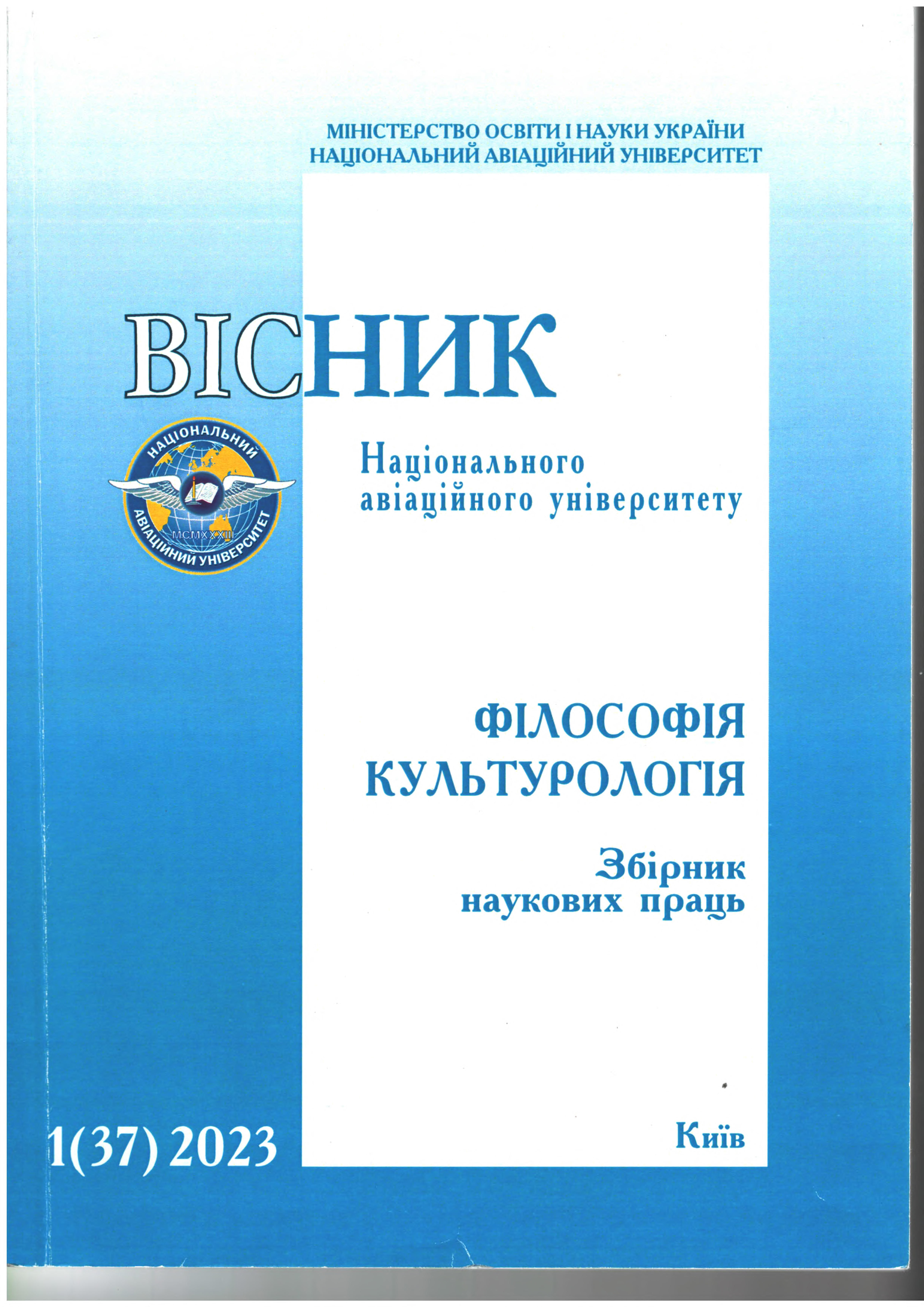MULTICULTURAL SOCIETY OF FRANCE IN THE CONDITIONS OF THE DEVELOPMENT OF CULTURAL GLOBALIZATION
DOI:
https://doi.org/10.18372/2412-2157.37.17586Keywords:
культурна глобалізація, культурне розмаїття, етнокультурна національна ідентичність, етнокультурні суперечності, міжкультурна комунікація, мультикультуралізм, мультикультурна практикаAbstract
Introduction. The development of cultural diversity in our time is imbued with certain contradictions. Basically, this concerns the titular
nations, and among them, the acute problem of multiculturalism arises in France. In this regard, in recent years there has been a
research interest in a similar topic related to the prospects of the formation of cultural globalization and, accordingly, multicultural
practices. The aim of this work is clarifying the current manifestations of ethnocultural contradictions in France and considering the
scenarios of further multicultural development of the state. Research methodology. The basis of the methodological basis of this work
is the methods of analysis and synthesis, the principles of historicism, alternatives, and systemic, civilizational, and sociocultural
approaches. Research results. Cultural diversity, as one of the foundations of cultural globalization, is to one degree or another
characteristic of most Western countries. The coexistence of social agents - representatives of different cultures makes France, in
particular, one of the most controversial states in terms of multiculturalism. In this aspect, we are talking about the difficulties in the
formation of such a type of multiculturalism as "unity in diversity", which represents the possibility of equal existence in one state of
carriers of other ethnocultural identities. One of the problems of such a scenario of the development of multiculturalism policy, in the
author’s opinion, is the desire to preserve the original ethnocultural identity of France from its possible acculturation as a result of other
ethnocultural influences due to population migration. The appropriate sociocultural policy of the state should be established in our time
and should take into account the existing ethnocultural contradictions. At the same time, it is important for the governments of states
where this problem is ripe to carry out information campaigns to inform the indigenous population about the peculiarities of the
integration of migrants into the new society. The attitude of the indigenous population of the state to the migration policy of the
government should be one of the determining indicators when choosing the type of multicultural development. Discussion. Compared
to other studies on this topic, the author pays more attention to two possible ways to overcome ethnocultural contradictions in France.
He is talking about the probability of applying such a type of multicultural practice as "unity in diversity", and on the other hand, it means
an example of the multicultural formation of the USA. Conclusions. The current multicultural situation of France requires attention and
reformist shifts that will take place in the complex and colorful realities of choosing scenarios for the establishment of intercultural
communications. The latter is caused by the fact that the issue of optimizing relations between the bearers of the indigenous
ethnocultural identity and the population that migrated to the country and professes other ethnocultural values remains open.
References
Дрожжина С. В. Мультикультуралізм: теоретичні і практичні
аспекти. Політичний менеджмент. № 3. 2008. С. 98.
Козловець М. А., Михайлова М. О. Мультикультуралізм і
проблема єдності суспільства. [Електронний ресурс]. Режим
доступу: http: // eprints. zu.edu.ua /13400/
Русул О. В. Полікультурна криза та міграційне питання в
державах Європи. Вісник Національного авіаційного універси-
тету. Серія: Філософія. Культурологія: Збірник наукових
праць. Вип. 1 (33). К.: НАУ, 2021. С. 135-139.
Taylor, Charls. «The Politics of Recognition» In Multiculturalism:
Examining the Politics of Recognition. Edited by Amy Gutmann.
Princeton: University Press, 1994.


